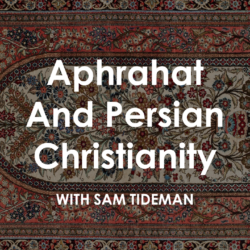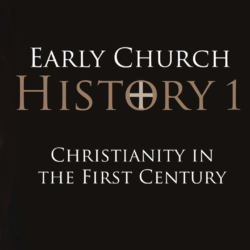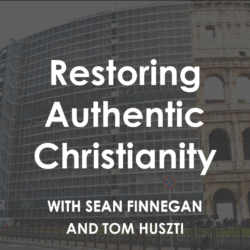Many believe there is 400 years of silence between the Old and New Testament. My guest today is Professor George Athas, director of research and senior lecturer in Hebrew, Old Testament, and Early Church History at Moore Theological College in Sydney, Australia. He’s the author of Bridging the Testaments, which covers four major periods, including Persian, Hellenistic, Hasmonean, and Roman. By studying the four centuries before Christ you can gain key insights to help you understand both the Old and New Testaments. You will discover that God was still speaking all the while.
Listen to this episode on Spotify or Apple Podcasts
—— Links ——
- More about George Athas here
- Check out his book: Bridging the Testaments
- Get the transcript of this episode
- Support Restitutio by donating here
- Join our Restitutio Facebook Group and follow Sean Finnegan on Twitter @RestitutioSF
- Leave a voice message via SpeakPipe with questions or comments and we may play them out on the air
- Intro music: Good Vibes by MBB Attribution-ShareAlike 3.0 Unported (CC BY-SA 3.0) Free Download / Stream: Music promoted by Audio Library.
- Who is Sean Finnegan? Read Sean’s bio here







Great interview.
I also have wondered about the source and veracity of the claim of 400+ years of silence. The Septuagint was written during this period. Does that count? Does Amos 8:11-14 prophesy of this period?
Hey Sean,
I really liked this interview, I learned some things. But I would like to push back on the point that Mr. Athas made about it being a myth that the intertestamental centuries were characterized by prophetic silence. I was surprised that Amos 8:11-12 was not brought up, where God says that the days are coming when he would send a famine through the land of hearing the words of Yahweh.This surely implies that there would be no prophets declaring God’s word during this time of famine. My question would be, “When was this prophecy fulfilled if not during the intertestamental period?” There were still prophets bringing the word of Yahweh during and after the Babylonian captivity (Jer., Ezek., Daniel, Haggai, Zech., Malachi) and then in the beginning of the NT we see John come on the scene. So who are the prophets who spoke the word of Yahweh in-between these? Mr. Athas kind of implied that John was proof that God had not stopped speaking, but John can be seen as the first prophet after the prophesied famine of the word was over. Yes, there was a flurry of Jewish writings during this period but can we say with any confidence that these writings were true specimens of God speaking to his people? I tend to doubt it. Much of it sounds like man, without the spirit, trying to compensate for the lack of true revelation from God during that period. What are your thoughts on this?